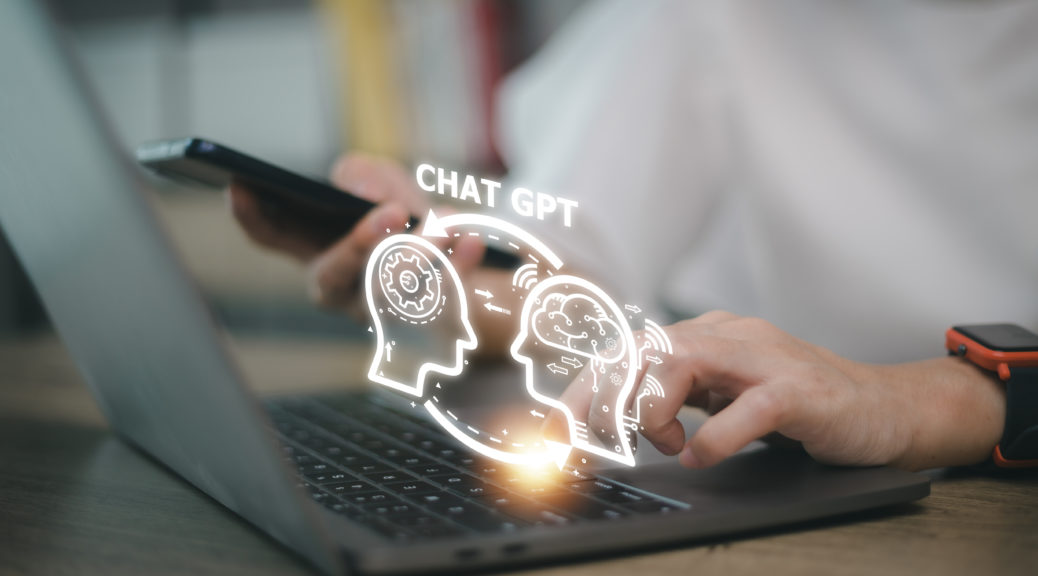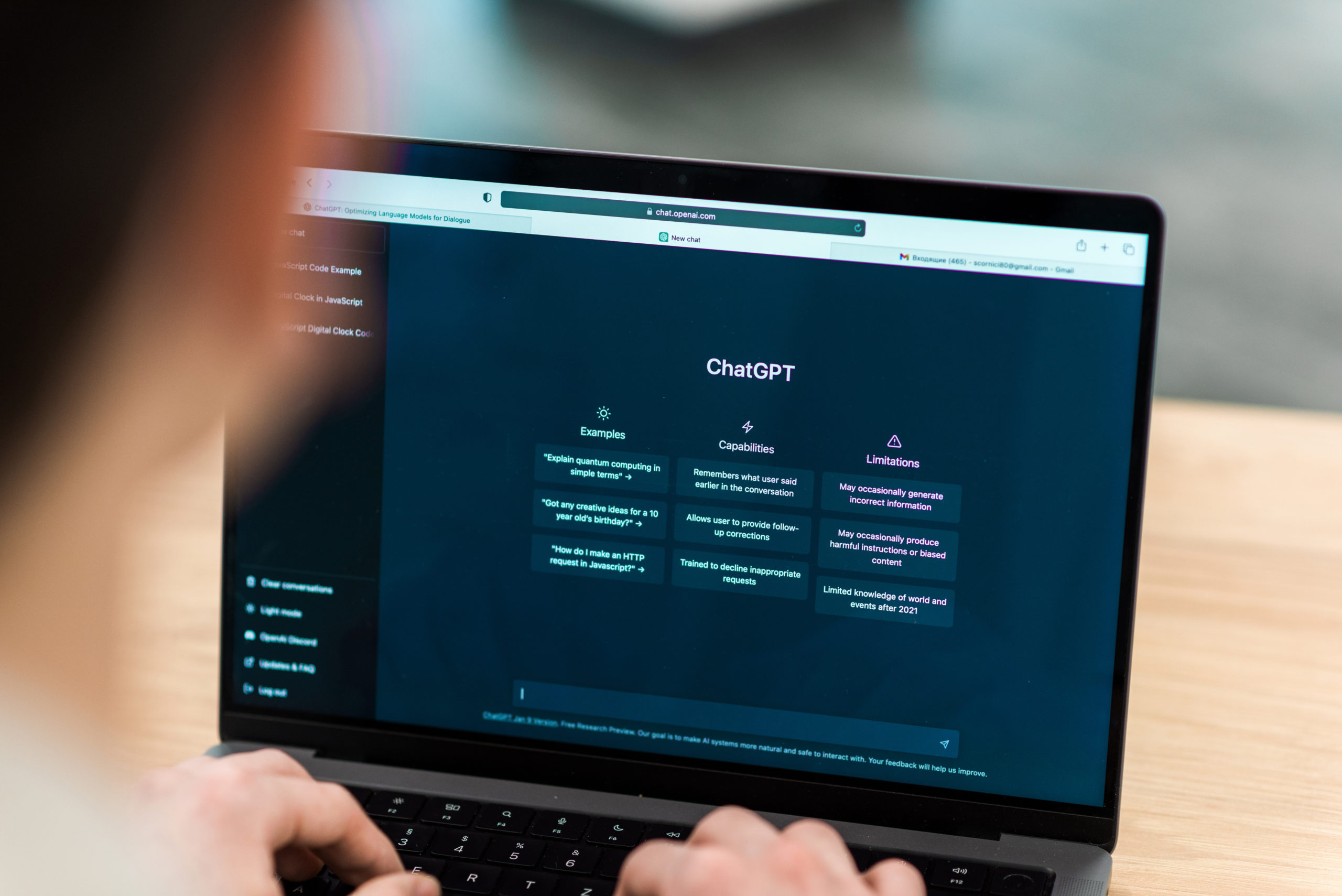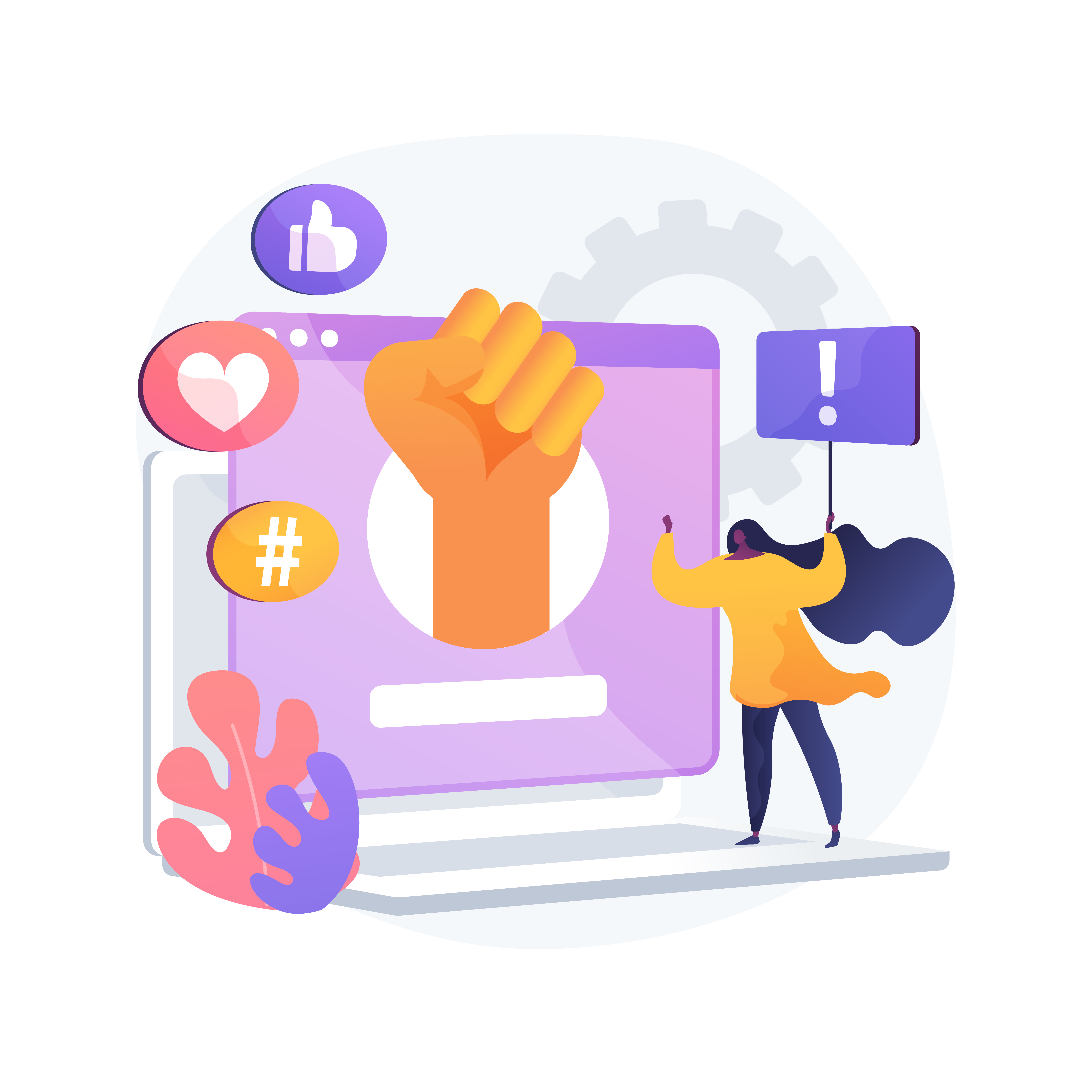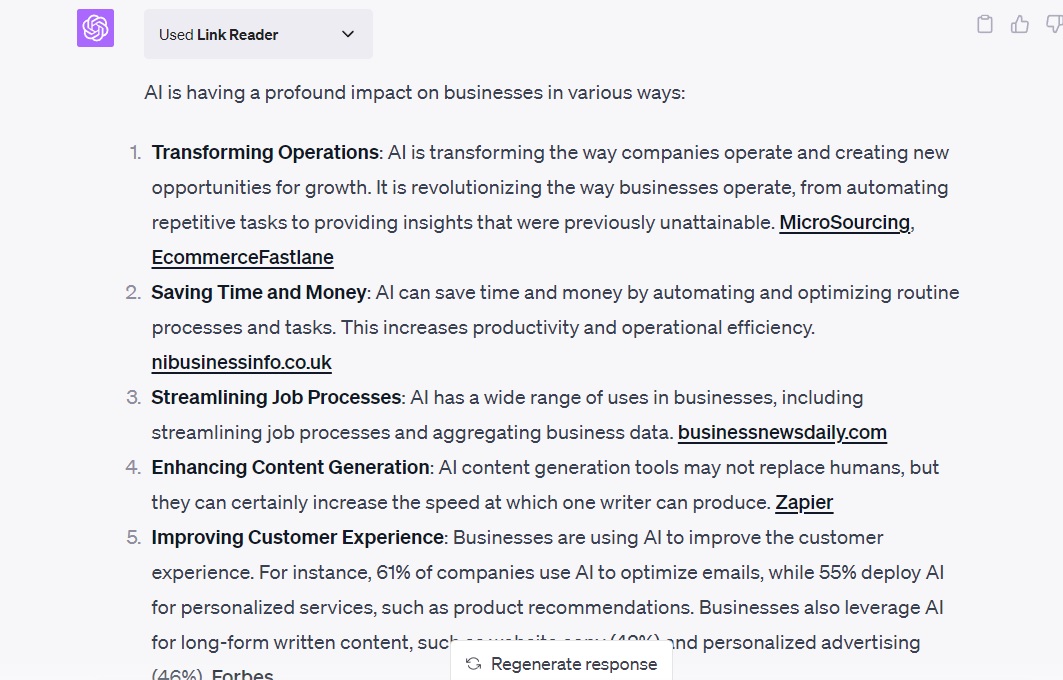
ChatGPT and SEO: A Paradigm Shift in Content Optimization
In today’s digitally driven world, search engine optimization (SEO) is a critical aspect of online presence and visibility. Meanwhile, advances in artificial intelligence (AI) have ushered in innovative tools like OpenAI’s ChatGPT(Generative Pre-trained transformed), a powerful language model that’s making waves in various industries, including SEO. This article will explore the role of ChatGPT in SEO, its applications, and what it means for the future of digital marketing.
What is ChatGPT?
ChatGPT, developed by OpenAI, is a powerful language model that belongs to the category of large language models (LLMs). These models have been trained on vast amounts of text data, allowing them to understand and generate human-like text responses. ChatGPT specifically utilizes a machine learning approach known as deep learning, which involves training a neural network on a diverse range of text sources.
It’s proven to be a game-changer in fields requiring text generation, including content marketing and SEO. But, does ChatGPT work for SEO? Yes, indeed. The AI’s ability to understand and produce content based on provided prompts can significantly streamline content creation for SEO purposes.
So, what does ChatGPT mean for SEO? Simply put, it presents an opportunity for SEO professionals to generate content more efficiently, allowing for better keyword integration, meta descriptions, and blog post creation.
The integration of ChatGPT and SEO (Search Engine Optimization) offers a powerful combination that can revolutionize the digital marketing landscape. By leveraging the capabilities of ChatGPT, SEO professionals can optimize their content and improve their website’s search engine rankings.
Content Creation with ChatGPT
One of the most significant applications of ChatGPT in the realm of SEO is content creation. By inputting specific prompts, SEO professionals can utilize ChatGPT to generate high-quality, SEO-friendly content that is both engaging and informative. This AI-generated content can be used for various purposes, such as:
- Webpage content: ChatGPT can help create well-structured and informative content for webpages, ensuring that they are optimized for search engines and user-friendly. Landing pages play a crucial role in converting website visitors into customers or leads. ChatGPT can help you draft persuasive copy that highlights the benefits of your product or service, captures attention, and encourages conversions.
- Blog posts: The AI can generate blog posts that are not only engaging but also optimized for SEO, making it easier for the content to rank higher in search engine results.
- Creating social media posts: ChatGPT can help generate engaging and creative social media content for platforms like Facebook, Twitter, Instagram, and LinkedIn. It can suggest captions, hashtags, and even provide ideas for visual content.
- Crafting email pitches: Writing persuasive email pitches to potential clients or partners can be time-consuming. ChatGPT can assist by providing suggestions, structuring the email, and ensuring a professional tone to increase the chances of a positive response.
- Generating PPC ad copy: Writing effective copy for PPC ads is essential to attract clicks and drive conversions. ChatGPT can provide ideas for ad headlines, descriptions, and CTAs that align with your campaign goals and resonate with your target audience.
Keyword Research and Blog Topic Generation
One of the most critical aspects of SEO is keyword research, as it helps identify the terms and phrases that users are searching for. ChatGPT can assist in generating ideas for keywords or blog topics by analyzing user intent and providing suggestions based on popular search queries. This can help SEO professionals create content that is more likely to rank higher in search engine results and attract organic traffic.

Metadata Generation
Metadata plays a crucial role in SEO, as it helps search engines understand the content of a webpage. ChatGPT can assist in creating metadata for website pages, including:
Title tags: The AI can generate relevant and concise title tags that accurately describe the content of a webpage, improving its search engine ranking.
Meta descriptions: ChatGPT can create compelling meta descriptions that provide a brief summary of the webpage content, encouraging users to click on the link in search engine results.
Image alt tags: The AI can generate descriptive alt tags for images, improving the accessibility of a website and enhancing its SEO performance.
SEO-Optimized Blog Posts
ChatGPT can be instrumental in writing SEO-optimized blog posts that cater to both search engines and users. By incorporating relevant keywords, creating engaging headlines, and ensuring proper formatting, the AI can produce blog posts that are more likely to rank higher in search engine results. Additionally, ChatGPT can help with:
Internal and external linking: The AI can suggest relevant internal and external links to include within the blog post, improving the overall SEO value of the content.
Content structure: ChatGPT can help create well-structured blog posts with clear headings, subheadings, and bullet points, making the content more readable and user-friendly.
Practical Implementations of ChatGPT in Real-World Scenarios
Marketers are leveraging ChatGPT’s full potential in real-world applications to revolutionize SEO practices.
- Customer Support: ChatGPT can be integrated into a company’s website or messaging platforms to provide instant and automated customer support. It can handle frequently asked questions, provide basic troubleshooting guidance, and offer personalized recommendations, freeing up human support agents to focus on more complex issues.
- Virtual Assistants: ChatGPT can act as a virtual assistant, helping users manage their schedules, set reminders, and answer inquiries. Users can interact with the virtual assistant through text-based interfaces or voice-based assistants, making it a versatile and convenient tool for managing daily tasks.
- Language Translation: With its language capabilities, ChatGPT can assist in translating marketing materials, website content, or customer inquiries in real-time. This functionality enables businesses to communicate effectively with a global audience, breaking down language barriers and expanding their reach.
- Market Research: ChatGPT can aid in conducting market research by creating surveys, collecting responses, and analyzing trends. Marketers can leverage ChatGPT to gather consumer insights, identify emerging trends, and make data-driven decisions.
- Personalized Advertising: By understanding individual customer preferences and behaviors, ChatGPT enables marketers to create personalized advertisements and recommendations. It can analyze customer data, deliver targeted content, and improve the relevance of ads, enhancing marketing campaigns’ effectiveness.
- Social Media Engagement: ChatGPT can help manage social media accounts by generating content ideas, scheduling posts, and engaging with followers. Marketers can utilize ChatGPT to maintain an active presence on social media platforms and provide timely responses to user queries and comments.
- Interactive Campaigns: ChatGPT can be employed to create interactive campaigns, quizzes, or games to enhance user engagement and drive brand awareness. For example, it can power chat-based interactive experiences on websites or social media platforms, increasing user participation and fostering brand loyalty.
Addressing Concerns and Combining Human Oversight with AI Capabilities
Does Google Penalize AI-Generated Content from ChatGPT?
A common query is whether Google SEO can detect content generated by ChatGPT. While Google’s algorithm is constantly evolving, it’s not explicitly designed to identify AI-generated content. Rather, it focuses on the quality, relevance, and user-centric nature of content. Therefore, as long as the AI-generated content meets Google’s quality criteria, it’s not likely to be penalized.
Here’s how ChatGPT-generated content can meet Google’s criteria:
Relevance: ChatGPT can generate content that aligns with the user’s search query by incorporating specific prompts and relevant keywords. This ensures that the AI-generated content provides valuable information that addresses the user’s needs.
Quality: ChatGPT has the capability to produce well-written, informative, and engaging content. However, it’s crucial to review and refine the AI-generated content to ensure it meets the highest quality standards. Human input and editing can help polish the content, making it more compelling and valuable for users.
User experience: ChatGPT can assist in creating content that enhances the user experience. It can generate well-structured content with clear headings, subheadings, and bullet points, facilitating readability and making it easier for users to navigate and consume the information.
Authority: While ChatGPT-generated content may not inherently possess authority, it can be combined with human expertise and credible sources to create authoritative content. Marketers can supplement the AI-generated content with references or citations from trusted sources to strengthen its credibility and demonstrate expertise in the given subject.
Here are some strategies to ensure the highest quality content:
Review and edit: Always review and edit the AI-generated content to ensure it is accurate, coherent, and free of errors. This process also allows for the addition of human nuance and emotion to make the content more relatable and engaging.
Stay up-to-date: Since ChatGPT’s knowledge is limited to data up to September 2021, it’s crucial for content creators and SEO professionals to stay informed about the latest trends, news, and updates in their industry. This will help them to supplement the AI-generated content with the most recent and relevant information.
Collaborate with subject matter experts: Work closely with subject matter experts to enhance the content’s credibility, authority, and relevance. This collaboration can also help ensure that the content is up-to-date and accurate.
Monitor performance: Regularly track the performance of AI-generated content in terms of search engine rankings, user engagement, and conversion rates to identify areas for improvement and make necessary adjustments.
If you’re keen to start using ChatGPT for SEO, here are some steps to follow:
- Begin with simple tasks: Start by using ChatGPT to generate meta descriptions or blog post ideas before moving on to more complex tasks.
- Combine AI and human input: Ensure that AI-generated content is reviewed and edited by human professionals to maintain a genuine, natural-like quality.
- Experiment and learn: Test different prompts and learn how the AI responds. Over time, you’ll get a better sense of how to get the most out of the tool.
Pros and Cons of Using ChatGPT for SEO
Like any technology, using ChatGPT for SEO comes with its pros and cons.
Pros
- Efficiency: ChatGPT can significantly speed up the content creation process, generating ideas, outlines, and even entire articles in a matter of minutes.
- Cost-effectiveness: By automating content creation, businesses can save on the costs associated with hiring additional content writers or outsourcing content production.
- High-quality, SEO-friendly content: ChatGPT is capable of generating well-structured, informative, and engaging content that is optimized for search engines.
Cons
- Lack of human nuance and emotion: AI-generated content may lack the human touch, including the nuances and emotions that make content more relatable and engaging to readers.
- Grammatical inaccuracies: ChatGPT-generated content may contain grammatical errors or inconsistencies, which can impact the content’s quality and readability.
- Data limitations: ChatGPT’s training data includes information up to September 2021, which means it may not be aware of the latest trends, news, or updates in a specific industry or subject matter.
Moreover, the introduction of ChatGPT 4 brings additional functionalities through extensions and plugins, expanding its capabilities to include web browsing. By integrating a web browser plugin with ChatGPT, users can access up-to-date information beyond the model’s knowledge cutoff date in 2021. This means that users can leverage real-time data, recent articles, and current trends to enhance their content creation, research, and strategy development.
These extensions and plugins make ChatGPT even more versatile, enabling content marketers to stay informed and produce engaging content that reflects the latest industry trends, statistics, and news. With access to real-time information, ChatGPT becomes a valuable resource for generating insights and gathering relevant data, saving time that would otherwise be spent scrolling through multiple blogs on search engine result pages (SERPs).
For instance, let’s consider an example where I enabled the “link reader” plugin on ChatGPT-4 to conduct research on the impact of AI for businesses. By using this plugin, ChatGPT can efficiently gather and analyze information from various online sources, presenting the user with relevant and summarized content. This process streamlines research efforts, allowing marketers to access the necessary data without having to navigate through numerous web pages manually.
Looking ahead toward the future
As AI continues to advance, its impact on SEO is set to increase. ChatGPT and similar technologies will likely become even more integrated into SEO practices, enabling more efficient content generation and potentially even predicting SEO trends. To stay ahead, SEO professionals should embrace these technologies while maintaining a focus on quality and relevance.
- Embrace AI-powered tools: Incorporate AI-driven technologies like ChatGPT into content creation and optimization processes to improve efficiency and stay competitive.
- Stay informed: Keep up-to-date with the latest developments in AI and SEO to ensure that content strategies and optimization techniques remain relevant and effective.
- Focus on quality and relevance: Ensure that AI-generated content meets the highest quality standards and addresses the unique needs and preferences of users.
- Collaborate with AI: Combine human expertise with AI capabilities to create content that is engaging, authoritative, and optimized for search engines.
In the realm of content optimization and SEO, the future development of ChatGPT, including the upcoming GPT-4.5, brings promising prospects. With GPT-4.5, marketers can anticipate improved performance, enhanced contextual understanding, and more accurate text generation, all of which are crucial for effective content optimization.
The advancements in ChatGPT’s capabilities hold significant implications for content creators. Marketers can leverage ChatGPT to generate high-quality and engaging content that aligns with SEO best practices. By prompting ChatGPT with relevant industry-specific questions or topics, marketers can obtain valuable insights for keyword research and content expansion. This ensures that the generated content is optimized for target keywords, improving search visibility and organic traffic
Conclusion
The advent of AI technologies like ChatGPT is transforming the SEO landscape, offering opportunities for efficiency, creativity, and innovation. While AI can’t entirely replace the human touch required for effective SEO, it undoubtedly represents a powerful tool in the modern SEO professional’s toolkit. As we move further into the era of AI, embracing these changes will be key to staying ahead in the evolving world of SEO.




